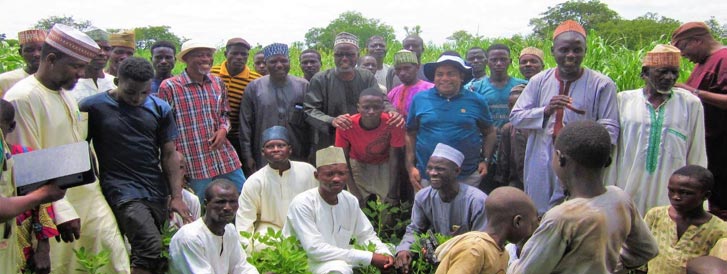
IITA and partners propose sustainable seed system as a solution
Seeds are fundamental to the continuity of agriculture. A seed is the propagative part of a crop that is preserved for growing a new crop. Seeds occur in structurally different forms but they are the ultimate precursor in the planting process. Being a major supplier of breeder seeds in Nigeria and beyond, IITA and its partners have been making efforts to ensure that high quality seeds of a wide range of varieties are produced and made fully available and affordable to farmers and other agricultural investors as a means of ensuring food security.
A sustainable seed system involves a process of breeding seeds, selling them to farmers for cultivation to make profit, and ensuring food security. Dr Osman, Seed Specialist from Institute for Agricultural Research (IAR) Zaria, says seed breeding is pivotal to all other aspects of agriculture. Breeder and foundation seeds are sold to other breeding companies that multiply the seeds. Most farmers are yet to strictly adhere to the seed system; rather, they plant grains, leading to low harvest.
According to IITA Seed Systems Specialist, Lucky O. Omoigui, developing a sustainable seed system in West Africa through effective research to improve food production and ensure reduction in hunger and poverty in the country is a major way of solving the problem of low harvest. He added that seed breeders have to be more focused on developing seeds that are resistant and tolerant to both biotic and abiotic stress and also to develop seeds that can adapt to monocropping and intercropping systems.
Seeds are highly marketable because they yield rapidly. However, the major challenge of the seed system in West Africa is the low number of breeders. To become a seed breeder one must be certified by the National Agricultural Seed Council and must be equipped with knowledge on the technicalities of seed breeding. Other challenges include inadequacy of facilities for processing and keeping the seeds in good condition.
A sustainable seed system ensures increase in seed production such that farmers can be supplied with improved varieties of seeds, leading to an increase in crop production and nutrition, as well as income for smallholder farmers.
